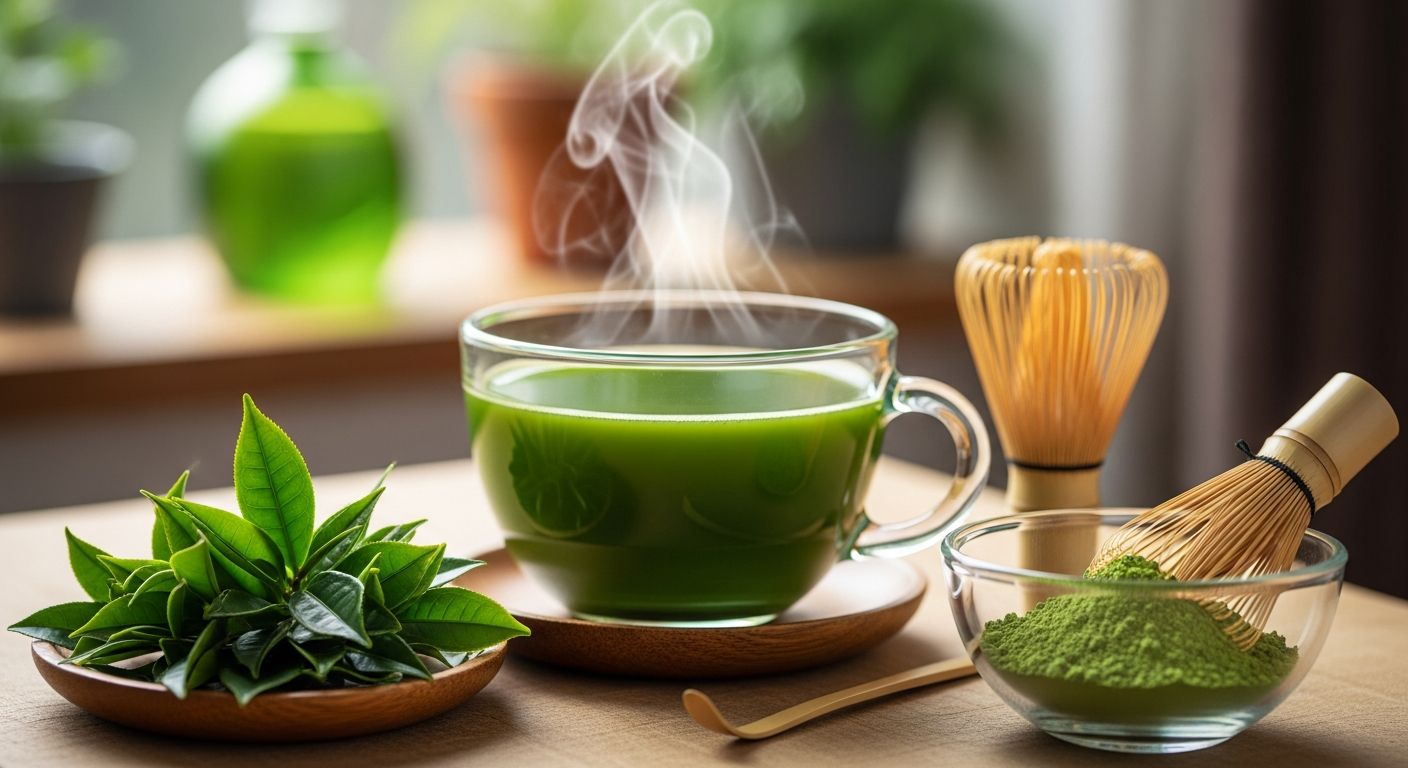Stress management, one of the least desirable things in life, has been traveling at our side in our hectic world for the past few years. It is taking the form of the tight deadline at the office, non-stop notifications, and pressure to take good care of both our private and professional lives. A little stress is good and can be a driving force. However, its prolongation and unmanagement turn it into a silent epidemic, which we exploit both mentally and physically.
Often, we try to get out of stress rapidly, but the real potency is in our body`s own reserves of strength. This blog will talk about three main aspects of health-meditation, nutrition, and sleep, and how they compose a complete strategy approach for stress to not only be controlled but also to change their character completely.
The Power of a Quiet Mind: Meditation
This no-frills practice for stress management changes the brain in a very positive way. It demolishes the size of the amygdala, which is the "fight or flight" center of the brain, while the prefrontal cortex, the part of the brain responsible for advanced thinking and decision-making, gets more active.
Indeed a 5-10 minute meditation a day can provide you with such advantages as lowering cortisol levels (the stress hormone), raising concentration and producing the quality of inner peace within you.
Gradually, you will realize that this ability is carried over into your daily routine where it helps you to give the stress situations a softer treatment which in turn causes less panic.
Also Read: Yoga Vs Gym In Indian Culture: Tradition Meets Modern Fitness
Fueling Your Resilience: The Role of Nutrition
It's a very simple formula: you are what you eat - and this is the most pronounced fact in the realm of stress management. Our diet has a direct effect on our mood and the amount of energy we have. The food that we eat can either alleviate the stress problem or worsen it.
Fix It With Food: The gut-brain axis is a communication superhighway. Healthy gut bacteria can produce neurotransmitters like serotonin, which is the main one in the regulation of mood. Eat more fermented foods such as yogurt and kimchi, and fiber-rich foods such as fruits, vegetables, and whole grains.
Omega-3 Fatty Acids: These are the healthy fats that are very necessary for brain function and may ease the production of inflammation which is the probable source of stress. Fatty fish (salmon), walnuts, and flaxseeds are sources of these healthy fats.
Limit the Triggers: Processed foods, excessive sugar, and caffeine are the culprits behind the blood sugar levels that shoot up and then crash. The result is a swing of moods and an increase in anxiety. In a manner resembling a cup of coffee, the situation in which caffeine would serve as your nervous system's great enemy is when you are fully in high alert mode.
Also Read: Nutrition Tips To Support Muscle Recovery After Workouts
Rest and Repair: The Non-Negotiable of Sleep
Imagine sleep as your body's essential daily maintenance for stress management. When in deep sleep, the body is fixing new cells, saving learning, and working through the day's emotional events.
Habitual sleep deprivation over a long period is one of the major stress sources that escalates cortisol levels, among others, and makes one vulnerable to anxiety and irritability.
To improve sleep quality, you may want to try the following recommendations:
Keep to a Schedule
Particularly from Monday to Friday, sleeping and waking at exactly the same time, sleeping in your body clock is really a great way to keep your circadian rhythm.
Quiet, Dark & Cool
Make your bedroom a wonderful and cozy place. Actually, in consideration of that the blue light they emit may interfere with melatonin production, try not to use your electronic devices such as a PC or Smartphone one hour before bedtime.
Sleep Preparation
Do a nice and relaxing ritual during the hour before your bedtime such as reading, taking a hot bath, or listening to music that you like.
Bringing In Both Physical Activity And Social Interaction
Stress management is a holistic approach that is not limited to meditation, nutrition, and sleep only. To effectively build up the resistance, it is very important to integrate these two major pillars into your stress strategy: physical movement and social connection.
Exercise Your Body, Liberate Your Mind
Stress will not be able to overcome physical activity. Working out leads to the manufacture of endorphins in the body, which are the body's natural mood elevators, and they can reduce the feelings of pain and stress.
If the person decides to take a brisk walk, do high-intensity training or a light yoga class, the result will be the same; the body will be freed from the tension and anxiety.
Moreover, regular exercise leads to the enhancement of sleep quality and the building of the body's reserves against stress.
Get Connected to De-stress
Social connection is a basic human need. Being alone and feeling isolated are primary sources of stress; however, having a reliable support system is comparable to a shield that protects you from the difficulties of life.
Oxytocin is a hormone that is known for its love and bonding qualities and for lowering cortisol levels. It is released when people spend quality time with their loved ones, both in person and through the internet.
Never underestimate the effect of a nice conversation and a common laugh, which can give a new start to your nervous system.
Creating Your Personal Stress Management Toolkit
These practices may not be as fun as others, but they are definitely caring acts towards oneself. When you take care of your mind and body, you are not only managing stress; you are also getting the hang of living in a world that can be quite overbearing. This holistic approach - meditation, nutrition, sleep, exercise, and social connection - enables you to regain your health, with each minor, deliberate step.
Conclusion
The road to stress management isn't by using a single drug but a change in your lifestyle. Doing meditation, eating healthily, and sleeping well become part of your routine, you will not be simply responding to stress situations.
On the contrary, you will be constructing a stronghold against them. These are not just remedies for today; they are very valuable for your physical and mental health in the long run.
Don't overdo it, be disciplined, and perceive how stress will behave differently to you and it will be a factor in your peaceful and satisfying life.
Frequently Asked Questions (FAQs)
Q1. How quickly can I expect to see results from these practices?
Some people think that after their first meditation session or a deep sleep, they can already feel the calm, but big and lasting changes require time. The main thing is to be consistent in your practice. Probably, within a few weeks of regularly completing all three pillars, you would start feeling lighter and more positive than usual.
Q2. How can I meditate if I’m too busy?
One hour is not mandatory. Just 5 minutes of deep breathing can do a lot of good. During your travel, before a meeting, or while waiting for your coffee to be ready, try it. Building a habit is the point here, not performing at a high level.
Q3. Does what I eat really impact my stress levels that much?
Yes, absolutely. Your diet has a major effect on the production of hormones and neurotransmitters that are responsible for your mood. For example, a diet high in processed foods might make blood sugar levels go up and down quickly, and these changes can induce symptoms similar to those of anxiety.
Q4. What's the most important tip for falling asleep easily?
The most powerful single way to solve the problem is to have a very strict sleep schedule. Trying to go to bed and waking up at the same time every day, weekends included, will help your body's internal timer be more regulated, and thus, falling asleep and waking up naturally will be much easier.
Q5. Are these practices a replacement for professional help?
Nevertheless, in large part, their main function is just to support professional therapy and not to replace it - meditation, proper nutrition, and sleep. If you are struggling with stress for a long time, experiencing anxiety or depression, you are definitely going to benefit from a visit to a doctor.
Explore More Articles
CLOSEST CLUB
Your Local Crunch Noida
SEE OUR MEMBERSHIP OPTIONS




































































